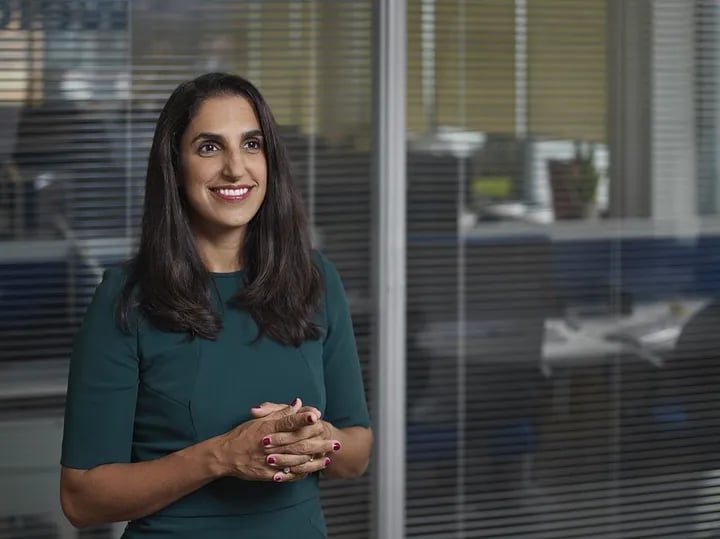Lil Bremermann-Richard, Group CEO of Oxford International Education Group
In our regular series, industry big wigs take us back to their first jobs

Hi, Lil! Who are you and what do you do?
I’m Lil, and I’m Group CEO of Oxford International Education.
What was your first McJob?
I’m originally from Uruguay. I came to the UK as an international student age 18 to study for the Chartered Institute of Marketing qualification, at Cavendish College, in Tottenham Court Road. I really needed to earn some money, so I begged the owner of the college, Mr Mohammad Sadeghian — an Iranian gentleman — to give me a job. I kept trying to find things I could do, and after about three months, he gave me a job running the post room. Students would call from around the globe, asking for a brochure. I would put the brochures into envelopes, put them through a franking machine and carry a big grey bag all the way to the post office near Goodge Street. That was from 4:30pm until 6pm. Then until 8pm I would do anything else I was asked, from keying invoices into purchase ledger, typing letters or checking emails on the single computer.
What was the worst bit of the job?
It was very chaotic, but I was desperate and earning £140 a week. And I was good at it! At one point, I said: “We’re spending £1000 a month on this franking machine, but 50% of the post is being returned unopened, so people are typing in the wrong addresses. We need to fix that.” So Mr Sadeghian started giving me more hours but not a lot more pay!
What did you spend you first pay cheque on?
I paid my rent and food and I didn’t have much left.
Did anything funny happen to you?
No. Nothing funny happens to me. I’m nerd!
Are are you still in touch with Mr Sadeghian?
I’m still in touch with Mr Sadeghian, and also Dr Sanders, who was the principal at the time. I actually learned a huge amount about how to run a business. Yes, it was their business, and I know I was cheap, but they were just trying to watch every penny and do the best they could. I now buy businesses that are not that different, and integrate them in a way that I can absorb what’s important.
How long did you work there for?
10 years, so it was very difficult to leave! I ended up setting up the international recruitment strategy. There was a economic crisis in southeast Asia that meant a lot of the students from Indonesia, Japan and Korea stopped coming to the the UK. I set up a team to explore south Asia. I said to Mo — Mr Sadeghian: “If you give me £3000, I’ll go to India and find a way that makes our courses attractive.” From that one trip, I brought in 500 students.
Why is alumni important to you personally?
The university I studied at — London South Bank — don’t have my name. They don’t know what I do and I think that’s a shame as there is a lost opportunity for me to support and add value. So at Oxford International, we make a huge effort with alumni and very likely we should do more. Alumni, whether for employees or students, become part of your ecosystem. You put in a lot of effort and time in acquiring people as individuals, training and teaching them. When they leave, they are your ambassadors. I’m a natural networker and it is the network I have built and continue to build over time that feeds my knowledge and helps me create opportunities. Building and nurturing an alumni community is essential for the sustainable success of an organisation.
What would happen if you went back in the post room again?
I still do! We don’t have a franking machine at Oxford International, but I regularly take pride on doing smaller jobs. I show people how I would like it done, how I used to do it, and how technology is exceptional, but it’s not essential. You can do things in the old way. Don’t tell me: “Oh, we don’t have that system, so we can’t do that.” I come from the time of pen and paper and carrying envelopes!
https://www.linkedin.com/in/lil-bremermann-richard-0a383915/

